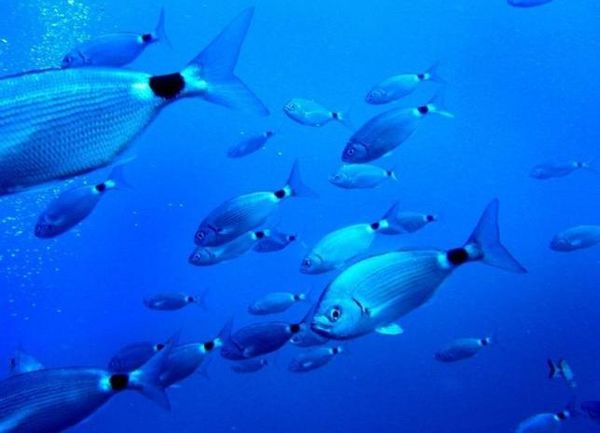Ocean output rivals big nations' GDP, but resources eroding
Date: 23-Apr-15
Country: NORWAY
Author: Alister Doyle

Fish swim in the Mediterranean sea on the south coast of the
Balearic island of Mallorca, Spain August 20, 2006.
Photo: DANI CARDONA
Economic output by the world's oceans is worth $2.5 trillion a year, rivaling nations such as Britain or Brazil, but marine wealth is sinking fast because of over-fishing, pollution and climate change, a study said on Thursday.
"The deterioration of the oceans has never been so fast as in the last decades," Marco Lambertini, director general of the WWF International conservation group, told Reuters of the study entitled "Reviving the Ocean Economy".
Ocean output, judged as a nation, would rank seventh behind the gross domestic product of Britain and just ahead of Brazil's on a list led by the United States and China, the study said.
The report, by WWF, the Global Change Institute at Queensland University in Australia and the Boston Consulting Group, estimated that annual "gross marine product" (GMP) was currently worth $2.5 trillion.
That included fisheries, coastal tourism, shipping lanes and the fact that the oceans absorb carbon dioxide from the air, helping to slow global warming. The study did not estimate the rate of decline in GMP.
Lambertini said the report aimed to put pressure on governments to act by casting the environment in economic terms and was a shift for the WWF beyond stressing threats to creatures such as turtles or whales.
"It's not just about wildlife, pretty animals. It is about us," he said.
The report, for instance, values carbon dioxide absorbed from the air at $39 per tonne, drawing on estimates by the U.S. Environmental Protection Agency to judge damage from warming such as more flooding or risks to human health.
The study estimated that total ocean assets, such as coral reefs, mangroves, shipping lanes and carbon absorption, were worth a total of $24 trillion, about 10 times annual output.
Governments have repeatedly promised, and failed, to prevent ocean degradation. A U.N. Earth Summit in South Africa in 2002, for instance, set 2015 as the goal for restoring depleted fish stocks.
Lambertini said U.N. sustainable development goals for 2030, due to be set in September, could help the oceans recover if properly implemented, along with a U.N. deal to combat climate change due at a summit in Paris in December.
He also urged governments to achieve a U.N. goal of creating protected areas to cover 10 percent of all ocean area by 2020, up from 3.4 percent now.
(Reporting By Alister Doyle; editing by Ralph Boulton)
![]()
© Thomson Reuters 2015 All rights reserved